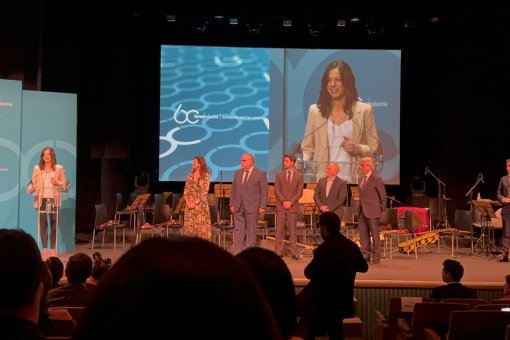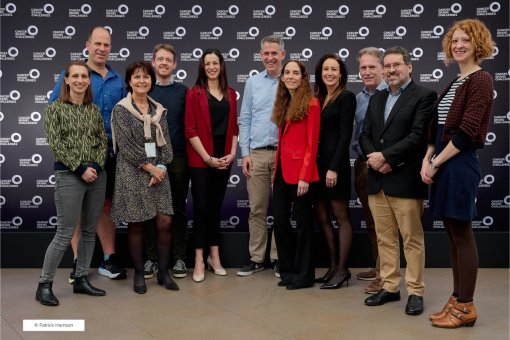Contact

Three groups from the Institute for Research in Biomedicine (IRB Barcelona) will participate in two Consolider projects, according to initial reports published by the Spanish Ministry for Science and Education (MEC). A total of 17 projects were approved by the Ministry (three in the field of biomedicine and molecular biology); IRB Barcelona scientists will participate in two, entitled “Epigenetics: mechanisms and disease,” and “Centrosome_3D: toward a structural and functional understanding”.
Consolider-Ingenio 2010 is a strategy launched by the Spanish government to promote scientific excellence by increasing possibilities for collaboration between scientists and forming large research groups. Each project will be funded with five million euros over five years.
Epigenetics: mechanisms and disease
Ferran Azorín, principal investigator at the IRB Barcelona whose group studies the structure and function of chromatin, is one of nine scientific leaders of the project, “Epigenetics: mechanisms and disease". Epigenetics is the study of reversible changes in DNA where genes may or may not be expressed depending on external factors.
The study of of epigenetics and chromatin is a rapidly growing field. This is in large part due to the role that epigenetic alterations play in human disease. Most known epigenetic mechanisms can be traced to the modification of the main components of chromatin, DNA and histones. Such changes are at the root of several human diseases, including cancer.
Azorin’s group will study different aspects of histones and their function in relation to the structure of chromatin.
Centrosome_3D: toward a structural and functional understanding
Miquel Coll, principal investigator at the IRB Barcelona whose group works on the structural analysis of proteins, nucleic acids and complexes, and Cayetano González, who leads the cell division group, will participate in a network called “Centrosome_3D: toward a structural and functional understanding.”
The centrosome is a key component that plays a central role in many processes and functions of the cell, including the regulation of a cell’s shape and motility and the control of cell cycle progression.
The project comprises 10 interdisciplinary research groups, expert in cell biology (including González), structural biology (including Coll), and bioinformatics. The network has the ambitious goal of defining the structural basis of the biological function of the centrosome. They plan to shed new light on the function of this cell component that is involved in a series of human pathologies, which include developmental defects, neurodegeneration and cancer.
IRB Barcelona
El Instituto de Investigación Biomédica (IRB Barcelona) trabaja para conseguir una vida libre de enfermedades. Desarrolla una investigación multidisciplinar de excelencia para curar el cáncer y otras enfermedades vinculadas al envejecimiento. Establece colaboraciones con la industria farmacéutica y los principales hospitales para hacer llegar los resultados de la investigación a la sociedad, a través de la transferencia de tecnología, y realiza diferentes iniciativas de divulgación científica para mantener un diálogo abierto con la ciudadanía. El IRB Barcelona es un centro internacional que acoge alrededor de 400 científicos de más de 30 nacionalidades. Reconocido como Centro de Excelencia Severo Ochoa desde 2011, es un centro CERCA y miembro del Barcelona Institute of Science and Technology (BIST).


